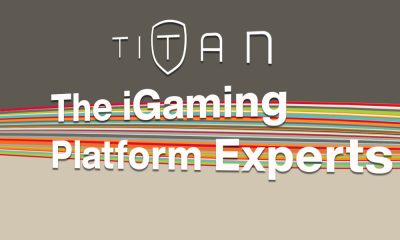Compliance Updates
UKGC publishes interim evaluation on the successful implementation of the ban on gambling with credit cards

An interim evaluation of the Gambling Commission’s credit card ban indicates the action is popular among consumers and has not resulted in harmful unintended consequences.
The credit card ban was introduced in April 2020 to add another layer of protection for consumers and add friction to the process of gambling with borrowed money. Evidence revealed some gamblers with high levels of debt were using credit cards to gamble.
When monitoring gambling and financial behaviours, the report found:
- support for the ban among consumers has been largely positive, qualitative data from consumers supports the conclusion that the ban helps people to gamble within their means and retain control
- the proportion of consumers reporting gambling with other forms of borrowed money has remained stable
- there has been no increase in reports of illegal money lending related to gambling
- while consumers are aware of ways to legally bypass the ban, far more people who previously gambled with a credit card now gamble with available (not borrowed) funds than other types of borrowed money
- bank data showed no observed spike for credit card gamblers in money transfers in the three months after the ban
- there was no spike in ATM withdrawals from credit cards around the time of the ban.
The report shows a major high street bank has observed the volume and value of gambling transactions with credit cards to the gambling merchant code reduced to a very low level. Continually low-level expenditure to businesses with gambling merchant codes was expected and can be explained by activities outside the scope of the ban such as lotteries and competitions spending.
Additionally, major e-wallet and electronic money providers have blocked gambling transactions if funding originated from credit cards.
Key sources used to inform the report were the Commission’s Online Tracker survey, which collects data quarterly from a nationally representative sample of approximately 2,000 adults aged 18+ in Great Britain, and Consumer Voice research completed by 2CV, which involved an eight-day online programme with 30 respondents.
Next steps: future evaluation activity
Ongoing monitoring of behaviours is important to ensure there is not an increase in harmful forms of funding gambling activity.
NatCen Social Research have been commissioned to conduct a full evaluation of the ban on gambling with credit cards by Greo as part of their programme of work to strengthen evaluation of safer gambling initiatives. This is scheduled for completion in early 2023 and the Commission will use these findings, along with our continued monitoring, to inform future policy development.
Andrew Rhodes, Interim Chief Executive of the Gambling Commission said: “Protecting consumers is at the heart of everything we do, we introduced this policy as part of our multifaceted work to reduce gambling harm.
“The successful implementation of the ban across the industry and the impact on consumer behaviour and financial spend we have monitored so far is an encouraging sign that the ban has reduced consumer reliance on gambling with borrowed money. We look forward to NatCen’s report on the long-term impacts of the ban and how this can inform our future policies.”
Powered by WPeMatico
ACMA
ACMA Blocks More Illegal Online Gambling Websites

The Australian Communications and Media Authority (ACMA) has requested the Australian internet service providers (ISPs) to block more illegal online gambling sites, after investigations found these services to be operating in breach of the Interactive Gambling Act 2001.
The latest sites blocked include:
Lucky Mate
Vegastars
Wombet
Cosmobet
Fortune Play
Fortunica
Rolletto
Velobet
Website blocking is one of a range of enforcement options to protect Australians against illegal online gambling. Since the ACMA made its first blocking request in November 2019, 1518 illegal gambling and affiliate websites have been blocked. Over 220 illegal services have also pulled out of the Australian market since the ACMA started enforcing new illegal online gambling rules in 2017.
The post ACMA Blocks More Illegal Online Gambling Websites appeared first on Eastern European Gaming | Global iGaming & Tech Intelligence Hub.
3 Oaks Gaming
3 Oaks Gaming Enters Spanish Market

3 Oaks Gaming, an established distributor of iGaming content, has entered the Spanish market after securing certification to supply its slot portfolio in the region.
This approval enables Spanish-licensed operators to integrate more than 20 of 3 Oaks Gaming’s games, bringing some of the distributor’s most recognised slots to local players.
Certified titles available include recent releases such as 4 Pots of Egypt: Hold and Win, Rush for Gold, and Egypt Power. The portfolio showcases 3 Oaks Gaming’s signature Hold & Win mechanic alongside Scatter Pays and its increasingly popular 3 and 4 Pot models, delivering engaging gameplay certified for the Spanish market.
Securing the Spanish certification represents a significant step in 3 Oaks Gaming’s ongoing European growth strategy, supporting its expansion across established and regulated markets.
By entering Spain with a robust, fully approved portfolio, the distributor underlines its commitment to compliance while offering operators content that is aligned with local market requirements and player preferences.
Krasimir Pankovski, Head of Sales at 3 Oaks Gaming, said: “Spain is a strategically important regulated market for us, and obtaining certification here marks an important milestone in our growth journey. By launching a diverse range of certified titles, we are giving Spanish-licenced operators the flexibility to offer engaging content while meeting the highest regulatory standards.”
The post 3 Oaks Gaming Enters Spanish Market appeared first on Eastern European Gaming | Global iGaming & Tech Intelligence Hub.
Compliance Updates
Dutch Regulator KSA Warns Operators Over “Early Payout” Feature

The Dutch Gambling Regulator (KSA) has contacted several online sports betting providers regarding incomplete information about the “early payout” feature. The “early payout” feature allows a bet to be considered won before the match has officially ended. This feature is not available in the event of a draw. The KSA found that several providers failed to communicate this sufficiently, making it appear as if players could also use this option for draws.
Early payout
The Early Payout feature allows players to declare their bet a winner if their team has a two-goal lead during the match, regardless of the final result. The odds for Early Payout bets are lower than those for regular bets. The problem arises when this option appears to be offered for draw bets, as there is no team with a lead.
Unclear information leads to confusion
Providers also promote lower odds for draws under the “early payout” feature. The providers’ terms and conditions then state that early payouts are not possible for draws, but this isn’t always clearly communicated when placing the bet. This creates confusion among players, who may assume that early payouts also apply to draws.
Obligation to provide clear information
Providers are required to provide clear and understandable information about the possible outcomes of a bet, including the associated terms and conditions. The KSA determined that providers were not complying with this obligation when providing information about the “early payout” feature. Providers that offer this feature have been contacted and have improved their communication so that players are now more clearly informed about the limitations of early payout for bets on draws.
The post Dutch Regulator KSA Warns Operators Over “Early Payout” Feature appeared first on Eastern European Gaming | Global iGaming & Tech Intelligence Hub.
-

 Edvardas Sadovskis CPO at ICONIC217 days ago
Edvardas Sadovskis CPO at ICONIC217 days agoICONIC21 Reimagines Myth: Medusa vs. Perseus — The Stone Duel
-

 Canada7 days ago
Canada7 days agoGaming Corps takes flight in Ontario with High Flyer Casino partnership
-

 Africa7 days ago
Africa7 days agoAmusnet Announces Strategic Partnership with Betway
-

 CRM7 days ago
CRM7 days agoTitan 3.0 Launch Marks Finnplay’s Biggest Platform Overhaul
-

 Christer Fahlstedt7 days ago
Christer Fahlstedt7 days agoPaf has halved its loss limit since 2018
-

 Canada7 days ago
Canada7 days agoCasinoCanada and GG.BET Forge Strategic Alliance
-

 AGLC7 days ago
AGLC7 days agoContinent 8 set to back Alberta’s iGaming operators and suppliers
-

 Latest News6 days ago
Latest News6 days agoWinSpirit’s UnValentine’s Day: A New Take on February Engagement

















